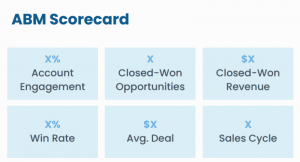— October 9, 2017
![The Top 10 Secrets of Running a Successful Business [Infographic] The Top 10 Secrets of Running a Successful Business [Infographic]](https://www.onlinesalesguidetip.com/wp-content/uploads/2017/10/The-Top-10-Secrets-of-Running-a-Successful-Business-Infographic.jpg)
Running your own business is a no easy accomplishment. With a lot of moving parts that you need to keep in check, it can be quite challenging and daunting to operate. But when done right, venturing into your own business can be one of the most rewarding decisions you’ll ever make in your life.
If you’re planning, yet still afraid to take the challenge of entrepreneurship, then worry not because we’re here to help you out. Here are top 10 secrets you need to know to run a successful and profitable business.
The following infographic is followed by a text-version of this post for the visually impaired.
![The Top 10 Secrets of Running a Successful Business [Infographic] The Top 10 Secrets of Running a Successful Business [Infographic]](https://www.onlinesalesguidetip.com/wp-content/uploads/2017/10/The-Top-10-Secrets-of-Running-a-Successful-Business-Infographic.png)
1. Be Persistent
Many startups and even decade-old companies do not survive these days, often through not the fault of their owners. So, before you start your own business, you need to understand that whatever failures that you will encounter will not reflect your self-worth.
Be mentally strong and positive at all time. Establish a plan for the possibility of closing the business and make sure to reflect so you can learn from the setbacks. More importantly, see problems as an opportunity to prove what you can give to your customers, and as a way to further develop your business from the inside out.
2. Create Opportunities
Have you ever asked yourself how some small businesses flourish with opportunities? The answer is that instead of just seeking opportunities, they rather create their own opportunities to prosper! In business or in life at large, opportunities will always be present for those who recognise and pursue them.
From launching a new program, to simply engaging your clients regularly, there are a lot of ways to create more profitable chances. Just open your eyes and widen your approach and you will surely be able to generate bountiful opportunities that will help you achieve your business goals.
3. Understand the Business Know How
Of course, you need to know the nitty-gritty of a business. As stated earlier, a business has a lot of moving parts that you need to know of so that you can have full control or at least an idea of what’s going in and around your business operations.
First, there are key business skills which you need to develop, or be acquainted with in case you want to delegate them to others:
- Strategic Management – Creating a strategic plan for your business and making sure you keep to it.
- Basic Accounting – Which records to keep, how to keep them and how to file them.
- Financial Management – Where to find funds and how to manage it once you’ve obtained it.
- People Management – Hiring your first employee and how to manage them.
- Marketing – How to market your business through traditional channels and digital platforms.
- Sales – How to close a deal and take care of your customers.
- Operations Management – Choosing and managing your suppliers.
4. Unknown to Known – Seek Answers, Get Advice
It’s completely normal to ask for advice if ever you face difficulties in your business. Seeking counsel – from mentors, peers, even your suppliers, and vendors – is an effective way of leading your business. It doesn’t reflect weakness, but reaching out for help can significantly improve your chances for success.
Seeking answers and advice not only improve your knowledge in managing the business but your relationship to other people as well. There are plenty of people who have gone through similar experiences as yours, have had others help them, and they will surely love to share their piece of advice to you as a way of payback.
5. Have the Right Network and Use Your Contacts
Networks are essential for your business since it allows you to connect, share experiences, practices, and more importantly, gain insights and opportunities before your competitors do.
By having the right networks, you can collaborate with your industry peers where you can press each other into a place of greater application of one’s expertise. This results into a guaranteed success for whatever endeavor you’re pursuing, and further development of your skills as a business person.
6. Know When to Quit
Most experienced business people never believed in the cliché “A quitter never wins and a winner never quits.”. It’s not that successful people never quit, but rather they know when and how to quit. Instead of thinking that the next prospect, customer, or consultant can make all the difference after a series of unfortunate setbacks, successful people know when to step back and move on.
There’s no dishonor in surrender. In fact, quitting allows us to reevaluate ourselves and see new opportunities. Remember: The great ones are not defined by how many times they fall but how many times they get up after falling.
7. Research Your Service Providers Well
In business, you may need support to do the things you want to accomplish. A service provider can help you with that. But in order to ensure they will meet your objectives and help you achieve your goals, it’s extremely important to know a service provider well before you choose one.
Your chosen service provider will be handling tasks and processes which are essential to ensure efficient day-to-day operations. So, it’s important to know if they can deliver quality service and if they are aligned with your business needs. Here are a few things to consider before choosing a service provider:
- Know if they have experience similar to the one you’re planning to outsource.
- Ask for references and work samples/case studies.
- Ask how they are going to maintain a good level of communication with the team members from your side.
- Understand whether or not the company has the technical knowledge and project experience to meet your requirements.
8. Understand Your Customers and Provide an Irresistible Value Proposition
Don’t just venture into business without understanding what your customer’s wants and needs are. Conduct extensive market research first, and upon identifying their wants and needs, as well as their purchase behaviour, you can then create a compelling value proposition for your customers.
Your market research should also help you to tweak your market timing so you can reach them fast and effectively. It should also tell you if your market is big and viable enough to support your business. All of these are crucial to maintaining a cashed-up business in the long run.
9. Know Your Numbers, Know Your Tipping Point
Knowing the detailed numbers behind your business is crucial to achieving success. Even if your business is doing good, your profits will surely get choppy a little bit. With a lot of uncertainties in the market, as well as other factors which could impact your bottom line these days, knowing your numbers is the only way to strategically manage your business’s finances and revenue.
These numbers include, but are not limited to:
- Cash flow
- Net Income
- Profit and Loss
- Sales
- Price Point
- Gross Margin
- Total Inventory
10. Know Your Cost Base
The ‘cost base’ of your products and services are the cost involved in order to produce or deliver them. This is extremely crucial in determining the markup you will include in the selling price of your goods and services. By knowing your cost base, you will be able to determine the optimum markup percentage which provides you with profit margin and guarantees that you will not sell at a loss.
Your cost base might include, but not limited to the following:
- Direct materials
- Direct labor
- Manufacturing overhead.
Another way to run a successful business is to leverage the power of freelancers!
Digital & Social Articles on Business 2 Community
(56)








